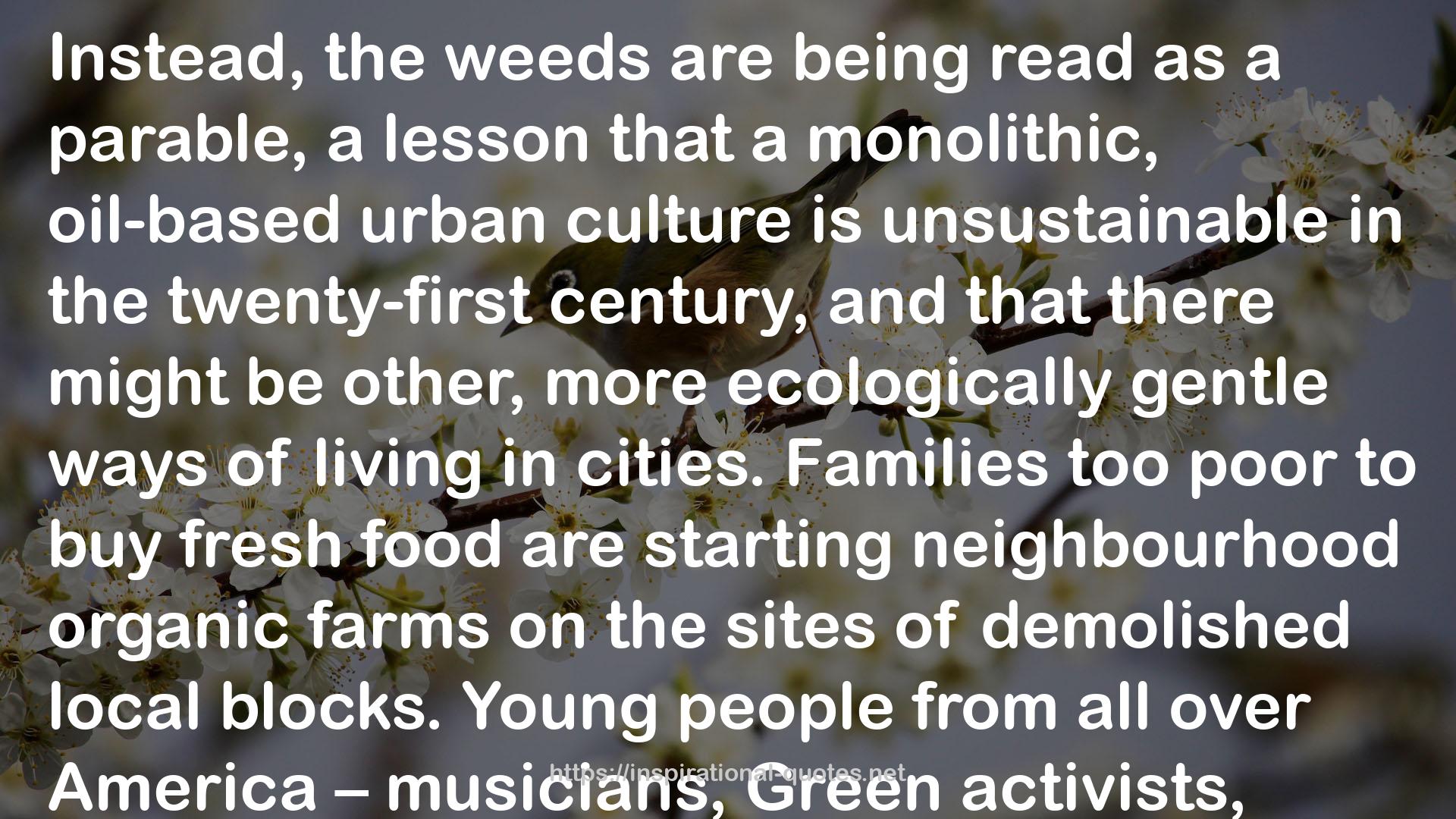" Instead, the weeds are being read as a parable, a lesson that a monolithic, oil-based urban culture is unsustainable in the twenty-first century, and that there might be other, more ecologically gentle ways of living in cities. Families too poor to buy fresh food are starting neighbourhood organic farms on the sites of demolished local blocks. Young people from all over America – musicians, Green activists, social pioneers – are flooding into the abandoned areas, keen to experiment with new patterns of urban living which accept nature – including its weedy frontiersmen – rather than attempting to drive it out. As Julien Temple, director of the remarkable TV documentary Requiem for Detroit, has written: ‘amid the ruins of the Motor City it is possible to find a first pioneer’s map to the post-industrial future that awaits us all’. "
― Richard Mabey , Weeds: How Vagabond Plants Gatecrashed Civilisation and Changed the Way We Think About Nature
